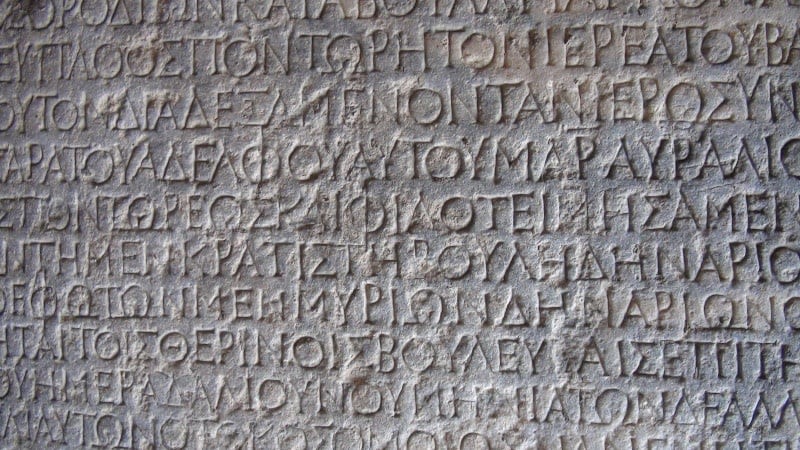It takes a lot of time and effort to learn to read in a different language. Do I really need to do that in order to understand the New Testament properly? Is it worth it?
Firstly, let’s be clear that you don’t need to do this, for the simple reason that other people have dedicated their lives to doing this—and you get to read from the fruit of their labours anytime you pick up a good English translation. What’s more, you can get into the habit of reading different translations in parallel (Bible software and phone apps are good for this) so you get a “feel” for the translational issues going on behind the scenes. Anyone preparing to teach the Bible ought to have read the text in at least two or three different translations (I suggest NIV, ESV, and NASB, which have contrasting translational approaches). One benefit of this is it guards against interpretations that might only “work” in one particular English rendering.
However, if you do have the time and interest—or if your full-time calling is going to be teaching Bible—there are great benefits in having at least a working knowledge of how the Biblical languages operate, even if you never end up getting to the point of reading it fluently. Let me name just three:
1. You will be able to understand the translational debates that go on in Bible commentaries, and begin to weigh the various arguments.
For example, an important expression in Paul’s theology, dia pisteōs Iēsou Christou (e.g. Rom 3:22; Gal 2:16) is grammatically ambiguous: are we justified “by faith in Jesus Christ” or “by the faith (fullness) of Jesus Christ”? An introductory NT Greek course will help you understand the issues involved and follow the ongoing theological debate which arises from it.
2. You will be able to evaluate for yourself the various translational options, instead of being at the mercy of a translator who out of necessity needs to pick one to go with (plus maybe one alternative in the footnotes).
There isn’t always a one-to-one correspondence between words in different languages; sometimes one word in Greek has a variety of possible English words which could be used, none of which fully captures the meaning.
One example is found in John’s Gospel, where Jesus describes the coming Holy Spirit as allon paraklēton (John 14:16). If you look up the various English translations, you’ll see quite a variety of attempts to render this: another advocate; another counsellor; another helper; another comforter; another companion… All of these words describe an aspect of the Greek word paraklētos, but no one word fully does it justice.
What’s more, Greek has two words for “other.” There’s other of a different kind, as in, “I don’t like this movie—can we watch another one?” And there’s other of the same kind, as in, “Bartender, I’ll have another.” Here in John 14:16, the Holy Spirit is another advocate/counsellor/companion of the same kind. The same kind as what? The same kind as Jesus! By that simple word, we instantly know a lot about this promised Holy Spirit, because his role will involve a continuation of the work (the advocacy/counsel/companionship) of Jesus.
3. You will better appreciate the artistry and even poetry of the New Testament.
Translating into English changes the word order, the phrasing, the rhythm—out of grammatical necessity. Learning to read it in Greek helps you recapture the original “feel” of the text. For example, Paul’s “sin lists” are often written for the ear, with balanced syllables, alliteration, and rhymes in the original language. Attempts to recreate this effect in English are often not that successful, as translators have to choose between precision in meaning and recreating the poetry. Here’s my go at reworking 2 Tim 3:2-5 for the (English) ear:
For people will be self-lovers and wealth-lovers,
self-important preeners and blasphemers, disrespecting their seniors,
un-grateful, un-holy, un-caring, un-yielding, slandering and philandering,
un-cultured, un-couth, back-stabbing, care-lacking, self-deluding,
fun-lovers more than God-lovers,
having a shell of piety, but denying its power
Reading this in the Greek, however, means you don’t have to do that (thankfully!) to experience the aural effect.
Interested in learning New Testament Greek? Morling College offers two subjects for credit (LA004A and LA004B) on campus and online - Click here to apply for credit subjects. However, if you're not wanting to do this for academic credit, we've made our first semester teaching materials available for free, in a self-paced, automatically-marked online course which is designed as a companion to the textbook by Jeremy Duff, Elements of New Testament Greek. You can check that out here.



